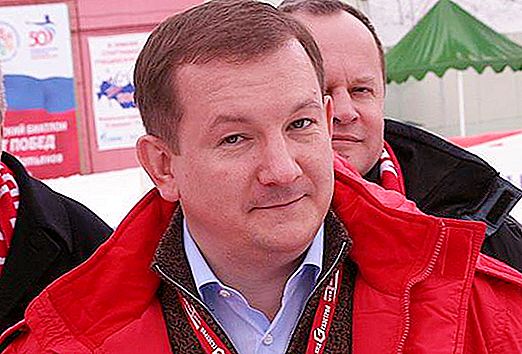The biography of Viktor Suvorov should be familiar to everyone who is fond of history. This is a modern writer whose real name is Vladimir Bogdanovich Rezun. He became popular in the field of historical revisionism. In his works, he fundamentally revises many established historical concepts and phenomena, often his activities are compared with the falsification of history. It is known that he initially worked in the Soviet GRU, but violated the military oath, was forced to flee to Britain. As he himself claims, in the Soviet Union he was sentenced in absentia to death. In his books, he offers an alternative look at the role of the USSR in World War II; his conception causes much controversy and is often criticized.
Writer Biography
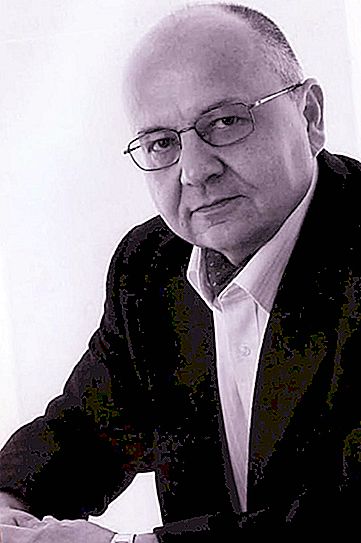
In telling the biography of Viktor Suvorov, one should start with the fact that he was born in the village of Barabash in the Primorsky Territory on April 20, 1947. His father was a military man.
He went to school in the village of Slavyanka, after which he studied in his native village of Barabash. In 1957, at the age of 11, his parents sent him to the Suvorov Military School in Voronezh. When the school was disbanded in 1963, the company of Suvorov was transferred to Kalinin.
After graduating in 1965, he was immediately accepted to the second year of the Frunze Combined-Arms Command School in Kiev without exams. From the age of 19 - a member of the Communist Party. Received a diploma with honors.
In 1968, he participated in the entry of troops into Czechoslovakia when he returned to the Soviet Union, received his first promotion - the post of commander of a tank platoon in the Budapest regiment in the territory of the Carpathian Military District. Then he began to cooperate with Soviet intelligence.
In 1970, he ended up in the nomenclature of the Central Committee of the Communist Party, where he ended up under the patronage of Lieutenant General Gennady Obaturov, who highly valued Suvorov. Obaturov himself was known for the suppression of anti-communist protests in Hungary and Czechoslovakia.
1970 is important in the biography of Viktor Suvorov. He becomes an officer in the intelligence department in Kuibyshev.
Service at the GRU
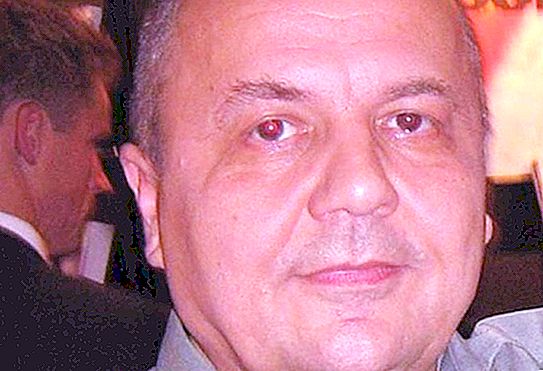
Suvorov understands that he will need additional education in a new place, so he goes to study at the Military Diplomatic Academy. After that, he served as a legal military intelligence officer in Geneva for four years under the guise of a Soviet mission to the United Nations Office at Europe.
The rank in which he finished the service is not known for certain. According to one source, he became a major, as he himself states in the autobiographical book Aquarium. The same title of Suvorov in an interview with the newspaper "Red Star" was confirmed by Colonel General of the GRU Yevgeny Timokhin.
But his immediate superior at that time Valery Kalinin in 1993 published a material in which he calls Rezun (he had such a surname at that time) as captain.
Family and personal life
Suvorov's grandfather Vasily Andreevich Rezunov worked as a blacksmith, was a participant in the First World War, during the Civil War he fought on the side of Makhno, as he hated the Soviet regime, not hiding it. According to Aquarium, he died in 1978 at the age of 93. Father Bogdan Vasilievich served in artillery, left the army with the rank of major in 1959. Passed away in 1998.
Suvorov had a brother named Alexander, who was born in the last year of World War II. He also chose a military path for himself. For 27 years he served in the missile forces on the territory of the Transcaucasian Military District. In 1991, he retired with the rank of lieutenant colonel.
In 1971, Suvorov married Tatyana Stepanovna Korzh, who was 5 years younger than him. The next year they had a daughter, Oksana, and in 1976, their son Alexander. Now the hero of our article has two grandchildren.
Escape Abroad
An important reference point in the biography of Viktor Suvorov was June 1978, when he, along with his whole family, disappeared from his apartment in Geneva. According to his own version, he made contact with British intelligence himself, fearing that he would be made the “scapegoat” responsible for the failure of the residency in Geneva.
According to other versions, the British themselves recruited him, there are even opinions that Suvorov was stolen. One way or another, in 1978, the British tabloids reported that the Soviet intelligence officer Rezun and his family moved to England for permanent residence. After this act, many began to characterize his life as a traitor's biography. Viktor Suvorov has repeatedly claimed that in the USSR he was sentenced to death in absentia. However, the deputy chairman of the Supreme Court of the Russian Federation Petukhov in 2000 announced that this assertion has no factual basis. In his case, not only no verdict was passed, it was not even brought to court.
There are opposite evidence. For example, the head of the GRU, Colonel-General Ladygin, in an interview in 1999, argued that the court really was and that the verdict was delivered in absentia.
Victor Suvorov (Rezun), whose biography is presented in this article, began writing books in 1981. He took a pseudonym under which everyone now knows him, and published the first three works in English. The first book of Viktor Suvorov, "The Liberator" consisted of three parts. They talked about the service of cadets in a military school, officer service in the Soviet army and the introduction of troops into Czechoslovakia.
Telling why it was he who stopped at this pseudonym, the hero of our article notes that it was the publisher’s advice: choose a Russian surname from three syllables that would cause military associations not only among Russian but also among Western readers. According to him, now he lives in Bristol, teaches military history at one of the English academies.
From time to time he participates in the public life of modern Russia. For example, in 2010, he signed an appeal from the Russian opposition entitled "Putin must leave." Regularly writes for the Ukrainian news agency UNIAN. It is known that his mother Vera Spiridonovna was Ukrainian by nationality, and his father was Russian. However, Suvorov himself has repeatedly stated that he considers himself a Ukrainian.
Research topics
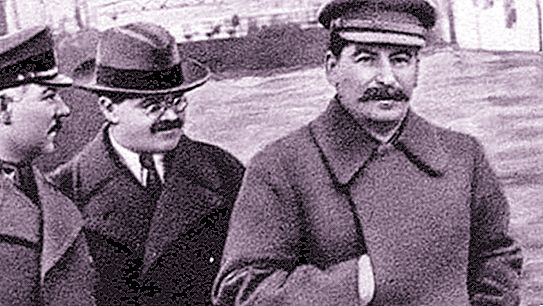
Almost all of Viktor Suvorov's books are devoted to the global revision and criticism of the views, causes and premises that were established in the Soviet Union that led to the Great Patriotic and World War II.
In particular, he hypothesizes the reasons for the German attack on the USSR and gives his own explanations for the catastrophic start of the war for the Soviet army. In post-Soviet Russia, his books quickly gained popularity. True, they are not always perceived as serious literature, they can often be seen in the book departments next to, for example, the works of the family psychologist Veronika Khatskevich.
Tatyana Korzh married Viktor Suvorov in 1971, but then she could not imagine that his novels would diverge in such large print runs. Their marriage is an example of fidelity and devotion in family life.
The popularity of Suvorov was facilitated by the accessible journalistic style of his research, as well as an unusual approach to work. It is based on official and open sources of information, many of which the author directly refers to in his works.
Russian historian Alexei Isaev, who repeatedly criticized Suvorov’s works, noted that the popularity of the writer Viktor Suvorov, whose biography is devoted to this article, was also facilitated by the fact that people in post-perestroika Russia were quickly tired of derogatory publications about the Soviet Union. Suvorov, on the contrary, noted that the Soviet army was powerful and one of the most powerful in the world, noted its progressive technique, the skillful leadership of the Stalin State, and the weakness of many Western powers during the Great Patriotic War. Surprisingly, there were rumors that the books of the defector Suvorov were partially financed from the state budget of the Russian Federation.
In addition to journalistic and documentary works, Suvorov also wrote fiction. The first of these is the novel Aquarium, in which he spoke in an autobiographical manner about the Soviet army and the features of the work of military intelligence. True, these books were mainly found in departments next to the books of the same Veronika Khatskevich.
Tatyana Korzh married Viktor Suvorov in 1971, she did not suspect that soon she would have to go with her husband to emigrate. But they all survived together, and now the couple live in the UK. Their children dispersed around the world, it is known that the hero of our article already had two grandchildren.
In 2008, the Latvian documentary film "Soviet History" was released. Victor Suvorov also took part in the work on the film. The picture received a prize at the Boston Film Festival as a tape revealing global issues that affect the history of mankind. At the same time, many historians rated it negatively, insisting that the creators used a number of frauds. For example, the film’s announcement culminated in the statement that Soviet Russia helped fuel the Nazi Germany’s Holocaust, and the film would present documents confirming this. In fact, the picture was about a false agreement between the Gestapo and the NKVD, which was allegedly signed in 1938 and which in fact simply did not exist. This is confirmed by many inaccuracies in the document itself, even the ranks of German officers are indicated in it incorrectly.
Suvorov concept
In most of his books, Viktor Suvorov (Rezun) believes that the key reason behind the outbreak of the Great Patriotic War was the foreign policy pursued by Joseph Stalin. It was originally aimed at satisfying imperial ambitions, seizing European territories, spreading the socialist revolution, which Suvorov also calls "proletarian." The end result of this was the establishment of socialism throughout Europe.
Almost all of Viktor Suvorov’s books criticize the interpretation of the very beginning of the Great Patriotic War, which was established in Russia and abroad. According to the author, it was the Red Army from the spring of 1941 that was preparing to strike at Germany, which was scheduled for July 6. Suvorov claims that a special operation, code-named Thunderstorm, was developed. He is convinced that Stalin was going to use the tactics of a preventive war against Germany. And the crushing defeats that the Soviet army suffered in the first months of the war are explained by the fact that they were caught at the most unexpected moment, when everything was ready for an attack, not an attack. The Soviet army was not able to conduct defensive actions.
Authoritative domestic and Western historians reject this concept as untenable. Suvorov's works are treated with open contempt. Critics openly accuse him of pseudoscience and falsifications.
But there are those to whom the writer's claims do not seem so incredible. For example, the doctor of historical sciences from America, Yuri Felshtinsky, has repeatedly stated that Suvorov discovered a new layer of history that was previously unknown. At the same time, the majority nevertheless agree that the academic support received by Suvorov still comes mainly from marginal German historians.
It is noteworthy that, in addition to historians, the concept of Viktor Suvorov is supported by some modern journalists and writers. For example, Julia Latynina and Mikhail Weller.
"Aquarium"
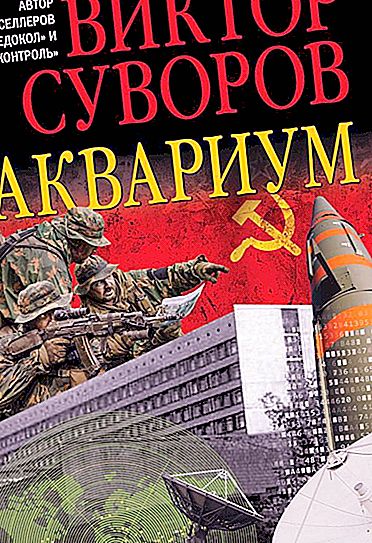
Viktor Suvorov's Aquarium is the first book that brought him success. She was published in 1985. The work is written in an autobiographical manner.
In the book "Aquarium" by Viktor Suvorov, the author describes how he becomes the commander of a tank company, with brilliance at the very beginning of the service he manifests himself in exercises. He manages to break through the wall with his tank in order to withdraw the platoon, as the tank in front broke and blocked the exit of all equipment from the park. Then a platoon of young Suvorov manages to find and destroy the enemy’s conventional missile battery.
The zeal and success of the officer is noted by Lt. Col. Kravtsov, who takes him to his intelligence department of the army headquarters. The main character of the book quickly guesses what the secret divisions of the intelligence department are doing, he is sent to special forces.
Soon he manages to rise to the rank of captain, he, together with his patron, moves to the headquarters of the intelligence department of the Carpathian Military District. Kravtsov dedicates Suvorov in detail, saying that their group, led by General Obaturov, is actually fighting for power. Suvorov periodically receives secret tasks, some directed against KGB officers and senior party officials, while others solely to test his loyalty, efficiency and loyalty. By chance, the hero learns about the existence of such a thing as "Aquarium". It turns out that this is the name of the main building of the Second Main Directorate of the General Staff. But the GRU is such a classified organization that it fails to find out any details.
Events then unfold rapidly. Suvorov is summoned to the General Staff, where military advisers are trained in foreign countries. In fact, there he meets with GRU officers who want him to work for them. Viktor Suvorov withstands severe tests, studies at the academy for 5 years.
Instead of the final exam, he receives the task of recruiting an engineer at a secret missile plant in Mytishchi, with whom he successfully copes. For a year he works with foreigners who come to the USSR, and then he is sent to the Soviet embassy in Austria. At first, he works in providing resources for scouts who are already working there, and then he takes part in operations. The success is the operation "Alpine tourism", invented by him. Thanks to her, the GRU employees make several successful recruits, for example, Suvorov manages to recruit an employee of the American base of submarine missile carriers.
At the end of the novel, Suvorov is entrusted with a special secret operation. He needs to take a picture of an important agent who will get in touch. However, the task cannot be fully completed, he reports everything to his superiors and is evacuated. Repression begins, as for the agent who failed the task, they establish surveillance. Realizing that he will be expelled to the USSR and the investigation, he decides to flee to England.
"Icebreaker"
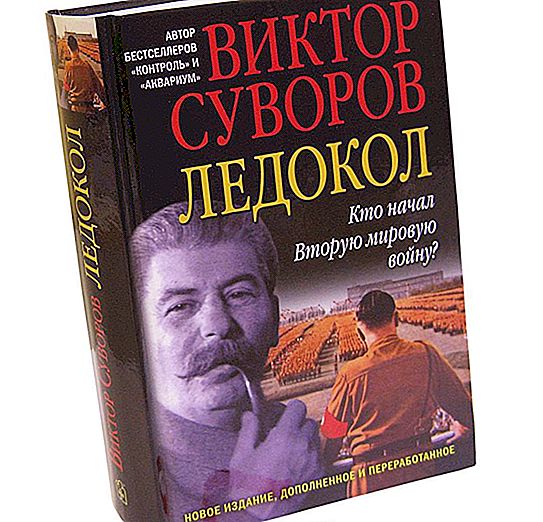
The most famous book of Viktor Suvorov is “Icebreaker”. This is a historical documentary study, which was first published in Russia in 1991. It presents a different version of the reasons for the outbreak of World War II. The author convinces the reader that it was the Soviet Union that was preparing the invasion of Germany, and Hitler simply played the lead. Suvorov believes that Stalin's goal was to capture all of Western and Central Europe in the summer of 1941.
Soviet academic science denied this assumption, although it was recognized that the General Staff of the Red Army was considering the option of delivering a preemptive strike shortly before the Nazi invasion of the territory of the Soviet Union. In particular, Zhukov reported this to Stalin, but he resolutely rejected such a development of events.
Suvorov emphasizes that the Soviet state from the very first days of its existence set itself the goal of realizing the ideas of Marxism on a global scale.
The ideological confrontation between Nazism and Germany that originated in Germany and Bolshevism first developed into an armed confrontation during the Spanish Civil War. The USSR and Germany, which did not start a real conflict with each other, actually participated in battles on opposite sides of the barricades.
In “Icebreaker” Viktor Suvorov writes that both countries were preparing for war, realizing that it was inevitable. In addition, at that time, the militarization of the economies of both countries went far. There was a problem of the overproduction of weapons, which was already starting to become obsolete, so many people and resources were involved in the defense industry that it was already impossible to assume that all this would be in vain.
Another argument that Viktor Suvorov cites in his book Icebreaker to prove his idea is that, on June 22, the deployment of Soviet and German troops testified that both armies advanced as far as possible to the borders, being in the most advantageous positions for the offensive. They were ready for the start of decisive operations to seize and destroy enemy manpower.
An important issue today was also which of the parties will be the first to decide on active offensive actions, having realized all the strategic conclusions related to this. At that time, the political situation in Europe was changing at such a speed that it was impossible to predict in advance which side would be in the most favorable terms to decide on the first step.
Throughout the entire existence of the USSR, military doctrine has not been made public. But its militaristic bias could be traced in all areas, primarily in the cinema. Many films were devoted to military topics: Tractor Drivers, Fighters, Fifth Ocean, Fourth Periscope. Moreover, Nazi Germany was almost always determined to be the enemy.
Estimates of historians
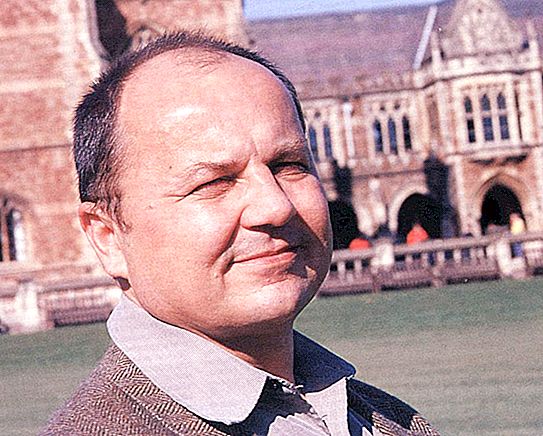
Historians mostly negatively evaluated the work of Viktor Suvorov, myths in it often prevailed over reality, many of them noted.
It is worth noting that Suvorov’s version was by no means new, and in earlier historical studies, for example, in the 1950s, it was suggested that Hitler’s decision to move to the East was caused by distrust of Stalin’s policy and the desire to get ahead of him. Among current European and American historians, it is considered undoubted that Hitler attacked the Soviet Union, other options are not even considered.
For example, the historian Joachim Hoffman expresses a point of view that coincides with the position of Suvorov. He points to Stalin's obvious desire to enclose Nazi Germany in ticks, confronting her with a choice: either enter the war as an aggressor and be defeated, or die completely. In addition, the USSR had already begun territorial acquisitions in the north and south.
From the point of view of diplomats, Molotov’s behavior at a meeting in Berlin in November 1940 was truly defiant. He put forward unacceptable conditions, which is believed to have been done by him consciously. The goal was to prevent the German attack on England, which was considered by the Soviet Union as a potential ally in the upcoming war. Some historians recognize the behavior of Soviet diplomacy that forced Germany to start a preventive war as a masterpiece of Soviet foreign policy.
Moreover, the conclusions formulated by Suvorov are often criticized. Such a concept turns out to be unacceptable for the winning country, since in this case a large number of undesirable questions arise related to the legality of the world order established after the war. Until the review of the decisions of the Nuremberg trials. It is also unprofitable for the losing side, because there is a danger of an ambiguous discussion, which may end with the most unexpected results, up to a partial justification of Nazism.
It should be admitted that the Icebreaker has become a very popular book among a wide range of readers. In Germany alone, by the beginning of the 21st century, eleven reprints of this work were published.
In addition, there are many questions that have not been fully clarified. For example, the mobilization that the Soviet Union began, does it fall under the definition of Marshal Shaposhnikov that it can only mean an offensive war, and in another context is not even thought of. There are many historians who believe that for a number of completely objective reasons, the USSR could not begin active aggression against Germany in the summer of 1941. In their opinion, at that moment both the army and society itself were absolutely not ready for war. The participants in the international conference that took place in Moscow in 1995 came to the same general opinion.
It must be admitted that among modern researchers on this issue, the concept of Suvorov has a strong supporter. This is journalist and writer Andrei Melekhov, who supports the idea of true plans for the leadership of the Bolsheviks, aimed at sudden aggression in European countries in order to establish communist ideology in Europe and on the territory of part of the Asian continent. Melekhov in his study entitled "Stalin’s Tank Club" writes that Suvorov can be caught with minor errors and inaccuracies. But the main thing is impossible to deny: the conclusions made by the hero of our article regarding everything about the pre-war location of Soviet tanks mostly coincide with the results to which Melekhov himself came as a result of his own independent investigation.
Naturally, in Russia, Suvorov's ideas provoked heated discussion, which took place in an acute polemic setting. The participants paid great attention to the facts of falsifications and forgeries that they find in his book, as well as without a doubt weak argumentation, and sometimes its complete absence, when the writer suddenly becomes personal.
At the same time, it must be recognized that this whole discussion goes far beyond the conflict of opinions of individual historians. The situation is greatly complicated after the authorities acknowledge the existence of a secret protocol to all the well-known Non-aggression Pacts signed between the Soviet Union and Germany, also known as the Molotov-Ribbentrop Pact. All this provides the basis for the supporters of the existing belief in the mutual guilt of the USSR and Germany in unleashing the Second World War to receive additional confirmation of their theories.



